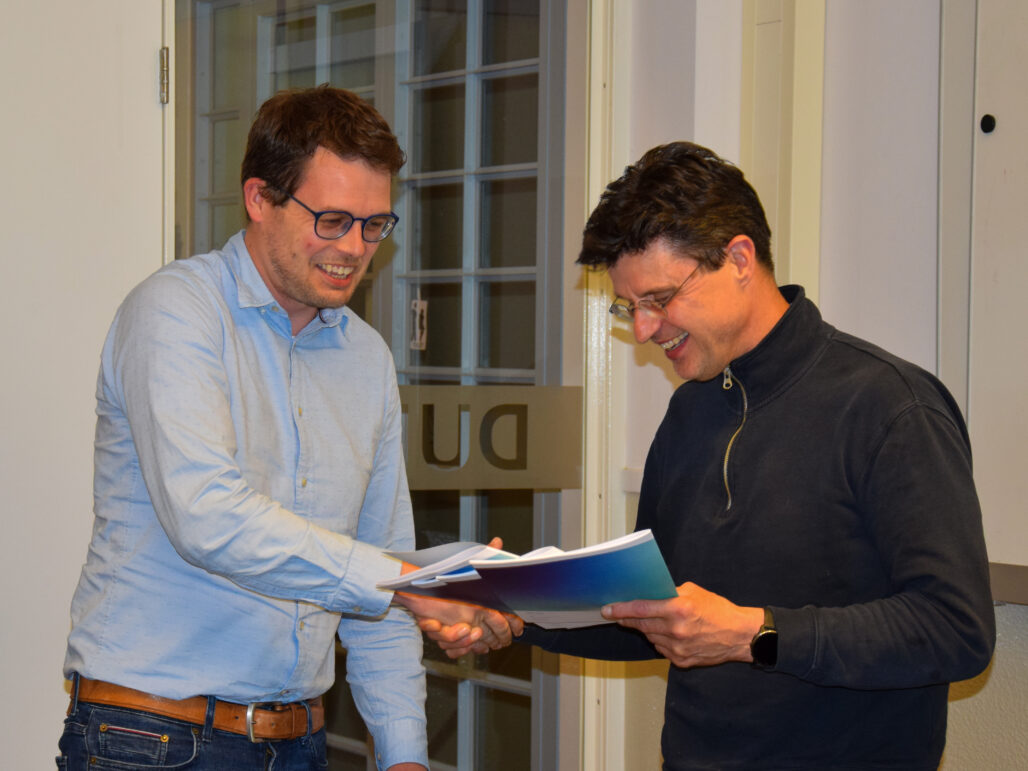The feasibility study Next Level Solid Oxide Electrolysis has explored the potential of Solid Oxide Electrolysis (SOEC) technology in the chemical and fuels industry, e.g. for large-scale green hydrogen production. This project aims to upscale the use of SOEC and assess its viability as a solution for producing hydrogen, carbon monoxide and syngas through electrolysis. In this way, industry can contribute to the goal of achieving a CO2-neutral Europe by 2050.
The Next Level Solid Oxide Electrolysis-project has suggested that an upscaling potential is possible through increase of current density with a factor 2, increased surface areas of cells with a factor 8 and bigger modules of 9 MW. As a result, a substantial CAPEX reduction with a factor 4 could be potentially achieved in 2030.
Solid oxide electrolysis cells (SOEC) technology has great potential
There are multiple options available for splitting water into hydrogen and oxygen. Alkaline water electrolysis (AWE) and PEM are the most advanced available technology options, but in the long-term solid oxide electrolysis cells (SOEC) technology has interesting benefits. SOEC has higher efficiency due to using steam instead of water. Also, SOEC can be integrated with a range of down-stream processes and utilisation of excess heat.
In this Next Level SOE project, ISPT and VoltaChem (Powered by TNO) have performed a feasibility study with partners Air Liquide, BP and OCI. The process and heat integration, the upscaling potential and the technical-economical aspects of brown-field applications of SOEC technology have been evaluated in three different industrial use cases.
The first use case examined the potential for hydrogen production in an ammonia plant at the OCI Chemelot site in the Netherlands. The second use case is a concept study conducted in collaboration with BP, exploring the integration of syngas with blue hydrogen and downstream e-fuels at a potential BP site. Additionally, a second option with only green hydrogen production is explored for this case. The third use case focussed on carbon monoxide production at Air Liquide‘s Rozenburg Rotterdam site.

The techno-economical possibilities
The SOEC study has evaluated both the technical and economic aspects of scaling up SOEC technology, up to 1 Gigawatt with repeating modules of 9 MW. The system efficiency for SOEC is calculated as 20% higher than typical for AWE and PEM technology. Excess steam can be used, or steam can be generated from residual heat. Carbon dioxide can be reused for syngas or carbon monoxide production. Attention however, is needed to address feedstock quality and reliability issues regarding adverse impact on lifetime of SOEC.
Based on literature and engineering factors, a capex reduction with a factor of 4 could potentially be achieved through upscaling, mass fabrication, and innovation. A next step could be the development of a pilot plant to demonstrate the technology on a 5 to 10 MW scale.
Acknowledgement
This project is co-funded with subsidy from the Topsector Energy by the Ministry of Economic Affairs and Climate Policy.
